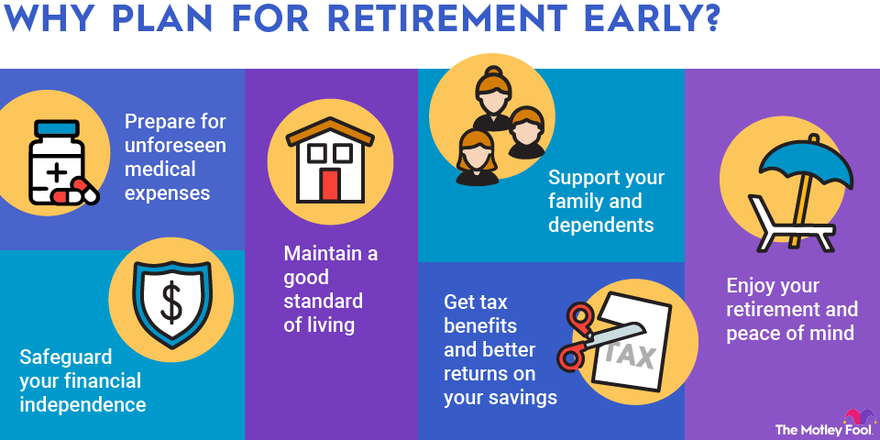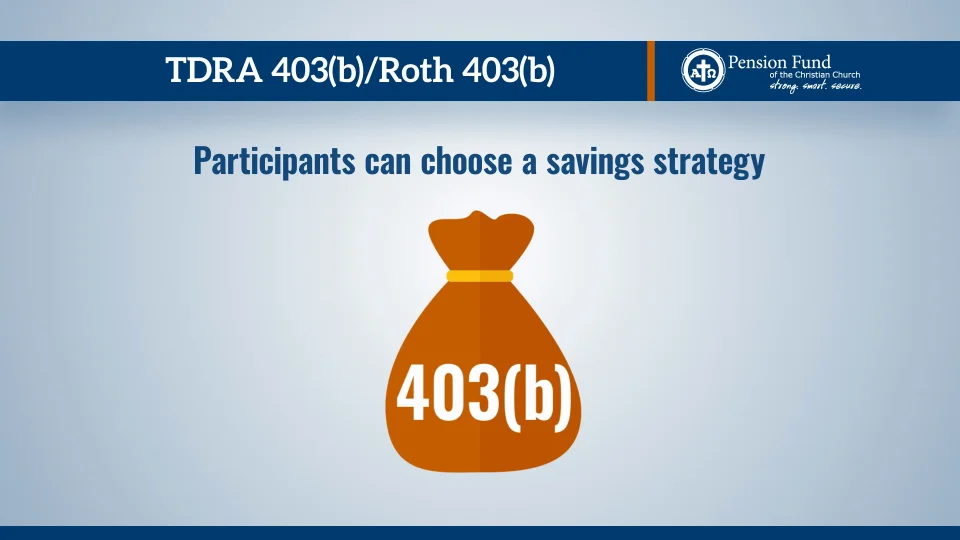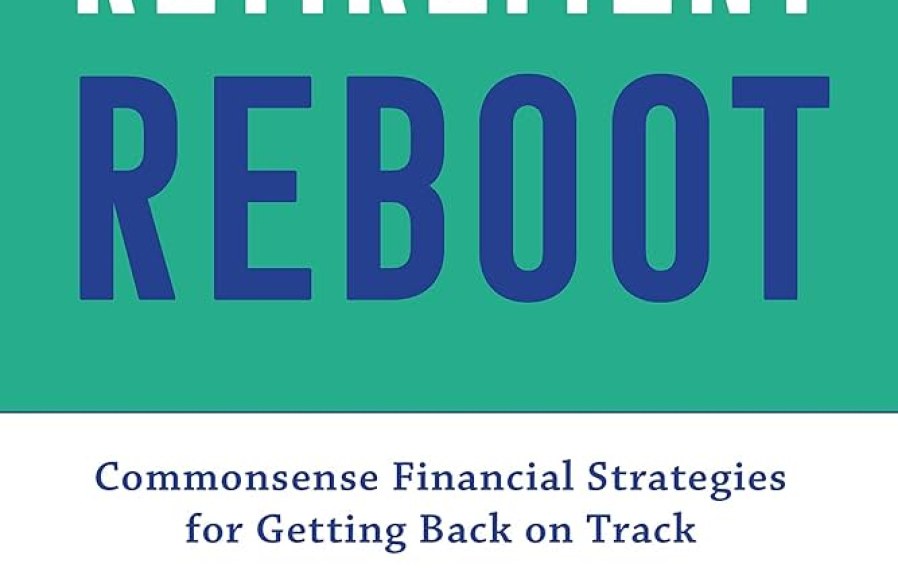To secure a financially stable retirement, having a pension plan is crucial. A pension plan ensures that individuals have a reliable source of income after they retire, helping them maintain a comfortable lifestyle without financial worries.
Without a pension plan, individuals may face difficulties meeting their financial needs during retirement, potentially leading to a lower standard of living or reliance on social assistance programs. As a result, it is essential for individuals to consider and invest in a pension plan to secure their future financial well-being.

Credit: m.facebook.com
The Importance Of Pension Plans
Key Benefits Of Pension Plans
Pension plans provide financial security for retirement.
- Guaranteed income after retirement
- Long-term savings and investment
- Employer contributions for retirement
Challenges Faced Without Pension Plans
Without pension plans, individuals may struggle financially in retirement.
- Relying solely on personal savings
- Uncertain income post-retirement
- Lack of employer contributions

Credit: http://www.fool.com
Types Of Pension Plans
A pension plan is a crucial element of financial security for individuals after retirement. It provides a steady income to support their lifestyle when they are no longer working. There are different types of pension plans available, each with its own features and benefits. In this article, we will explore three main types of pension plans: Defined Benefit Plans, Defined Contribution Plans, and Hybrid Pension Plans.
Defined Benefit Plans
Defined Benefit Plans, also known as traditional pension plans, guarantee a specific amount of retirement income for employees based on criteria such as years of service and salary history. These plans are generally provided by employers and offer a fixed payout to the retirees for the rest of their lives.
In a Defined Benefit Plan, the employer takes the responsibility of managing the investments and assumes the risk associated with the plan’s performance. Employees, in turn, benefit from the security of a guaranteed income post-retirement, unaffected by the market’s fluctuations.
Key features of Defined Benefit Plans:
- Guaranteed retirement income based on pre-defined criteria.
- Employer manages investments and assumes market risk.
- Stable income for employees throughout retirement.
Defined Contribution Plans
Defined Contribution Plans, unlike Defined Benefit Plans, do not offer a fixed retirement income. Instead, they are designed to help individuals accumulate savings for their retirement years. These plans, often sponsored by employers, allow employees to contribute a percentage of their salary to their retirement fund on a pre-tax basis.
In a Defined Contribution Plan, both the employer and employee can contribute to the retirement account. The contributions are invested in various financial instruments, such as stocks, bonds, or mutual funds. The final retirement income depends on the returns generated by these investments.
Key features of Defined Contribution Plans:
- Individuals accumulate savings for retirement.
- Both employer and employee can contribute to the retirement account.
- Investment returns determine the retirement income.
Hybrid Pension Plans
Hybrid Pension Plans combine features of Defined Benefit and Defined Contribution Plans. They aim to provide the security of a guaranteed income while allowing individuals to have some control over their retirement savings. These plans offer a mix of defined benefits and individual accounts, providing employees with more flexibility in managing their retirement funds.
One example of a Hybrid Pension Plan is the Cash Balance Plan. In this plan, employees receive annual contributions from their employers, which are defined as a percentage of their salary. The contributions are held in a hypothetical account that grows with interest. Upon retirement, employees can convert their account balance into a lifetime annuity or take a lump-sum distribution.
Key features of Hybrid Pension Plans:
- Combine features of Defined Benefit and Defined Contribution Plans.
- Offer a mix of guaranteed income and individual account options.
- Provide flexibility in managing retirement savings.
Factors To Consider When Planning For Retirement
When it comes to planning for retirement, there are several important factors that need to be taken into consideration. It’s crucial to carefully consider your current financial situation, expected retirement age, as well as inflation and cost of living adjustments to ensure a comfortable and secure retirement. Let’s explore each of these factors in more detail.
Current Financial Situation
Assessing your current financial situation is the first step in planning for retirement. Consider your income, expenses, assets, and debts. Create a budget to understand your cash flow and make necessary adjustments to maximize your savings.
Expected Retirement Age
Determining your expected retirement age is essential for retirement planning. Consider how long you plan to work and how it will impact your pension contributions and savings. Additionally, consider the potential impact on your social security benefits based on your chosen retirement age.
Inflation And Cost Of Living Adjustments
Considering inflation and cost of living adjustments is critical to ensure that your retirement income will be sufficient to maintain your desired standard of living. Account for the rising cost of goods and services over time when planning your retirement income.

Credit: pensionfund.org
Smart Strategies To Enhance Retirement Security
Pension plans play a crucial role in providing financial security during retirement. However, to ensure a comfortable and stress-free retirement, it’s essential to implement smart strategies to enhance retirement security. By maximizing contributions, diversifying investments, and conducting regular financial health checks, individuals can pave the way towards a more secure and stable retirement.
Maximizing Contributions
Maximizing contributions to your pension plan is a fundamental step towards securing a strong financial foundation for retirement. By growing your funds through consistent and substantial contributions, individuals can ensure a more robust financial cushion during their retirement years.
Diversifying Investments
Diversifying investments within your pension plan portfolio is an effective strategy to mitigate risk and maximize long-term returns. By spreading investments across various asset classes such as stocks, bonds, and real estate, individuals can benefit from diversification and safeguard their retirement savings against market volatility.
Regular Financial Health Checks
Regular financial health checks are essential to monitor the performance of your pension plan and make informed decisions. By periodically reviewing your investment portfolio, adjusting contributions, and staying informed about market trends, individuals can maintain financial stability and address any necessary adjustments to enhance their retirement security.
Pension Plan Regulations And Compliance
Ensure compliance with pension plan regulations to protect retiree benefits and ensure financial security. Proper oversight and adherence to rules are essential for smooth operation. Compliance measures support the long-term sustainability of pension plans.
Employee Retirement Income Security Act (erisa)
Employee Retirement Income Security Act (ERISA) is a federal law that sets forth certain regulations and requirements for employers who offer pension plans to their employees. It was enacted in 1974 to ensure that employees are provided with a secure and reliable source of income during their retirement years. Under ERISA, employers are required to provide certain information to their employees regarding their pension plans, including details about plan eligibility, funding, vesting, and benefit calculations. This not only helps to protect the interests of employees but also promotes transparency and accountability in pension plan administration. Additionally, ERISA establishes fiduciary responsibilities for those who manage and control pension plan assets. These fiduciaries are legally obligated to act in the best interests of plan participants and beneficiaries, ensuring that the plan is managed prudently and solely for the purpose of providing retirement benefits. ERISA also provides recourse for employees in the event of non-compliance or mismanagement of their pension plan.Tax Implications Of Pension Plans
One of the key considerations when it comes to pension plans is the tax implications for both employers and employees. The contributions made by employers towards their employees’ pension plans are typically tax-deductible, which can provide a significant financial benefit. This tax advantage encourages employers to offer pension plans as part of their employee benefits package. On the other hand, the funds accumulated within a pension plan are not subject to income tax until they are distributed to plan participants. This deferral of taxes allows individuals to grow their retirement savings tax-free and potentially accumulate a larger nest egg over time. However, once distributions from the pension plan begin, they are generally subject to ordinary income tax rates. It’s important for both employers and employees to understand the tax implications of pension plans to ensure proper compliance with tax laws and maximize the benefits offered by these plans. Seeking the advice of a qualified tax professional can help navigate the complexities of tax regulations and optimize the tax advantages available. In conclusion, pension plan regulations and compliance, as outlined by the Employee Retirement Income Security Act (ERISA), are crucial for employers and employees alike. The adherence to these regulations ensures that employees have a reliable source of income during their retirement years and promotes transparency and accountability in pension plan administration. Additionally, understanding the tax implications of pension plans is vital for both employers and employees to maximize the financial benefits offered by these plans.The Role Of Employers In Ensuring Retirement Security
The Role of Employers in Ensuring Retirement Security
Employer Matching Contributions
Employers play a crucial role in supporting employees’ retirement security. One key way they do this is through employer matching contributions. By matching a portion of an employee’s contributions to their pension plan, employers help employees grow their retirement savings faster.
Employee Education And Communication Initiatives
Employee education and communication initiatives are essential in ensuring retirement security. Employers can provide financial planning workshops and retirement seminars to help employees understand the importance of saving and investing for retirement. Clear communication about pension plan options and benefits is key to helping employees make informed decisions about their financial future.
Pension Plan Rollovers And Transfers
`When it comes to planning for retirement, pension plan rollovers and transfers are essential considerations. These processes allow individuals to seamlessly manage their pension assets when changing employers or retiring. Understanding the options for transferring pension assets to new employers and the rollover choices for exiting employees is crucial for ensuring a secure financial future.`
Transferring Pension Assets To New Employers
`Transferring pension assets to a new employer’s plan can be a seamless process, providing the individual with the ability to maintain their retirement savings while transitioning to a new job. It’s crucial to communicate with both the former and new employers to understand the procedures and requirements for transferring pension assets. By following the necessary steps, individuals can ensure the continuity of their retirement savings without incurring tax implications.`
Rollover Options For Exiting Employees
`Rollover options for exiting employees provide flexibility and control over their pension assets when leaving a company. By rolling over the funds into an Individual Retirement Account (IRA) or another qualified retirement plan, individuals can continue to grow their savings tax-deferred. This allows for the preservation of retirement funds and avoids potential tax consequences, ensuring a smooth transition and continued financial security.`
Common Misconceptions About Pension Plans
Pension plans are an essential component of retirement planning, providing individuals with a source of income during their golden years. However, there are several misconceptions surrounding pension plans that can prevent individuals from fully understanding and utilizing these valuable retirement benefits. In this article, we will debunk some of the most common misconceptions about pension plans to help you make informed decisions about your retirement strategy.
Pension Plans As Sole Retirement Income Source
One common misconception about pension plans is that they are designed to be the sole source of retirement income. While pension plans do provide a steady income stream, depending solely on a pension during retirement may not be sufficient to maintain your desired standard of living. It is important to remember that pension payments are typically fixed and may not keep pace with the rising costs of living.
To ensure a comfortable retirement, it is advisable to supplement your pension plan with other sources of income, such as personal savings, investments, or Social Security benefits. By diversifying your retirement income sources, you can create a more secure and flexible financial foundation for your golden years.
Availability Of Pension Benefits After Job Changes
Another misconception about pension plans is that individuals lose their pension benefits when changing jobs. This is not necessarily true, as the availability of pension benefits varies depending on the specific plan and the terms outlined in your employment agreement.
In many cases, individuals who change jobs may be able to preserve their pension benefits by transferring the accumulated amount to a different retirement plan. This process, known as a pension rollover, allows you to maintain the value of your pension benefits and continue building on them throughout your career. It is important to consult with your employer or a financial advisor to understand the options available to you when changing jobs and how they may impact your pension benefits.
By addressing these common misconceptions about pension plans, you can gain a clearer understanding of their role in a comprehensive retirement strategy. Remember to supplement your pension income and explore the various options available to you when considering job changes to ensure a financially secure and fulfilling retirement.
Frequently Asked Questions On How Pension Plan Needed
What Is A Pension Plan?
A pension plan is a retirement savings plan that is sponsored by an employer. It provides regular income to employees after they retire.
Why Do I Need A Pension Plan?
A pension plan is important for securing financial stability during retirement, providing a steady stream of income and ensuring a comfortable lifestyle.
How Do I Choose A Pension Plan?
When choosing a pension plan, consider factors such as the plan’s investment options, fees, and the reputation of the plan provider to ensure it aligns with your retirement goals.
What Are The Benefits Of A Pension Plan?
A pension plan offers tax benefits, employer contributions, and a reliable source of income during retirement, providing financial security for the future.
Conclusion
A pension plan is a crucial financial tool that should not be overlooked. It provides a reliable source of income during retirement, ensuring a secure and comfortable lifestyle. By contributing to a pension plan, individuals can take control of their financial future and mitigate potential financial strain in their golden years.
Planning early and choosing the right pension plan can make all the difference, offering peace of mind and financial stability in the long run.



Leave a comment